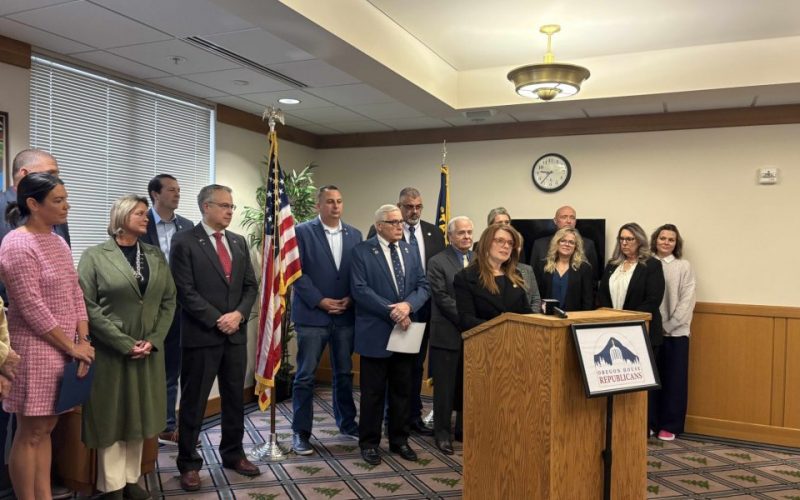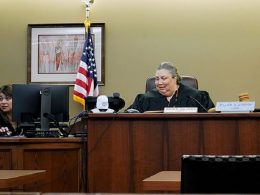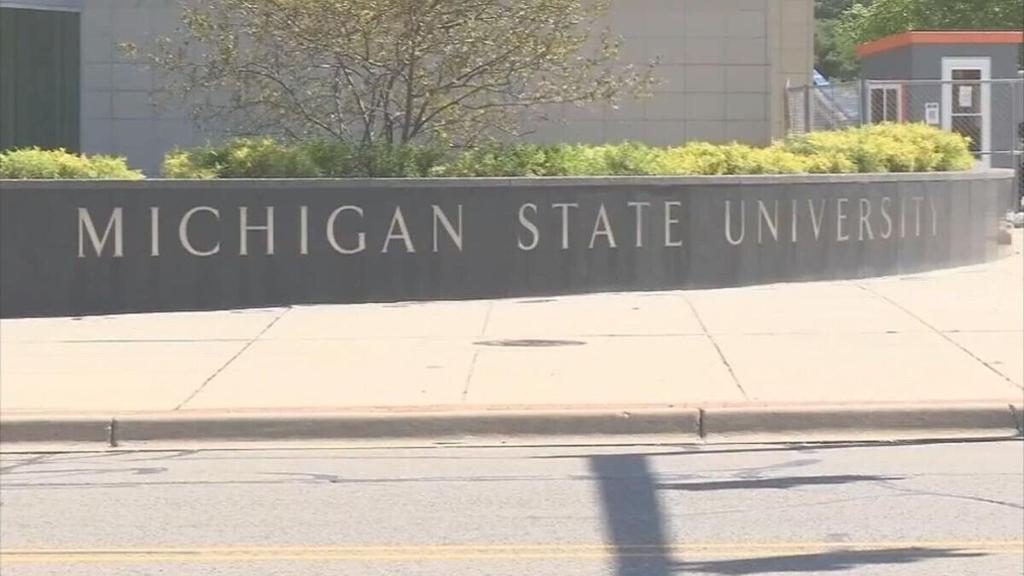Salem, OR – During a press conference on Thursday, Oregon House Republicans painted a bleak picture of the state’s escalating cost of living, growing homelessness crisis, and struggling public schools, though they provided limited details on how to address these issues. House Republican Leader Christine Drazan, representing Canby, stated that she hears daily from Oregonians who are dissatisfied with the government’s handling of these challenges. Despite acknowledging that Republicans lack the legislative power to push their own bills or block those proposed by Democrats—who hold a commanding majority in both the House and Senate—Drazan insisted that the party’s role is to represent the concerns of the public.
“We are letting Oregonians know that we hear them and we see them,” Drazan said. “We stand with them, and we will not be voting for bills that raise the cost of living.”
While Drazan’s remarks outlined the Republicans’ opposition to new taxes, including those affecting the cost of living, the party offered few concrete proposals for addressing the root causes of the state’s challenges. Their communications office did not provide additional details when asked for specifics about the bills being proposed.
Deputy House Republican Leader Lucetta Elmer, from McMinnville, outlined some of the party’s stances, including opposition to new taxes on essential goods and services. She also highlighted proposals such as repealing the corporate activity tax, which impacts businesses with over $1 million in commercial activity, and exempting prescription drugs from this tax. Elmer also voiced opposition to highway tolls and gas tax increases, which have been a concern for many Oregonians as costs continue to rise.
“From our gas to groceries and even our rent, these factors are forcing families to make tough decisions about whether they can even remain in their home state,” Elmer remarked.
A number of Republican bills were introduced, including House Bill 2033 and House Bill 2176, which would seek to repeal the corporate activity tax, and House Bill 2199, which would exempt prescription drugs from the tax. Rep. Shelly Boshart Davis, R-Albany, introduced House Bill 2234, which would allow workers to subtract overtime pay from their income taxes, while Senate Republicans have pushed for similar measures relating to tips.
On the topic of homelessness, Rep. Darcey Edwards, R-Banks, brought a personal perspective to the discussion, revealing that her son had experienced homelessness and addiction. Edwards criticized the state’s low-barrier shelters, which allow individuals to seek shelter without meeting sobriety or background check requirements. She called for targeted recovery services and an audit of existing homelessness programs, while also backing a repeal of a 2021 state law that limits cities’ ability to ban outdoor sleeping. Two proposed bills, House Bills 2432 and 2445, aim to undo portions of that law, which Edwards believes allows a dangerous and unsustainable situation for unhoused people.
“A tent is not a home,” Edwards said. “Oregonians are frustrated and deserve to live in safe, drug-free neighborhoods.”
While Republicans have expressed concern over homelessness, they face competition from Democrats, including Governor Tina Kotek, who has proposed an additional $2 billion in funding for housing and shelter programs for the unhoused.
Education was also a major focus of the press conference, with Republicans accusing Oregon’s public school system of losing its way. Rep. Boomer Wright, a retired school principal from Coos Bay, argued that the state must focus more on parental and student needs, with an emphasis on increasing school choice. Republicans have introduced bills like House Bill 3217 to create the Empowerment Scholarship Program, allowing students to use public funds for private school tuition, a concept that is opposed by Democrats.
Republicans also expressed frustration with what they see as a lack of focus on students’ best interests, calling for more educational opportunities outside traditional public schools. Wright urged his colleagues across the aisle to work together to expand school choice and ensure that all students have the opportunity to succeed.
“We have great teachers, talented and bright students and supportive families,” Wright said. “It is time to roll up our sleeves and work together to ensure all Oregon students achieve their dreams of excellence and success.”
In addition to education and economic concerns, Republicans have also focused on the issue of transgender athletes in girls’ sports. Several bills have already been introduced in both the House and Senate that would require school sports to be based on biological sex rather than gender. Drazan and other Republicans expressed support for these measures, emphasizing the importance of preserving opportunities for female athletes.
“We believe in girls’ sports, and we believe that the voices of those female athletes should have the opportunity to be heard,” Drazan said.
Despite the broad range of topics discussed, the Republican proposals remain largely conceptual at this stage, with few specific legislative actions outlined. As the legislative session continues, it remains to be seen whether these ideas will gain traction in a state legislature where Democrats hold a commanding majority.











